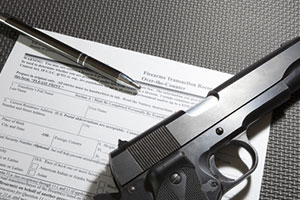
The issue of firearms and gun control is a heated topic these days, with many people on both sides of the issue. Many Illinois gun owners were not happy when the Firearms Restraining Order Act took effect on January 1, 2019. This law is one of the “red flag” laws that a number of states have passed in recent years in response to the acts of gun violence that have occurred throughout the United States. It allows family members or police officers to ask a judge to issue an order to temporarily confiscate guns from someone they believe is a threat to themselves or others. If you are served with a firearms restraining order, or if you are facing weapons charges, you should understand the restrictions you will face and the potential legal consequences that could come with violating an order.
Firearms Restraining Order Process
The person asking for a firearms restraining order (FRO) is called the “petitioner,” and the person the order is against is referred to as the “respondent.” A family member of the respondent can request the FRO if they believe the respondent is a danger to themselves or another person. People who can request an FRO include:
- Spouses
- Parents
- Children
- Stepchildren
- Persons related to the respondent, either by blood or by marriage
- A person who lives in the same home as the respondent
- A police officer
The requesting party must file a petition in the circuit court in the county where the respondent lives and state their case in front of a judge at a hearing. The petitioner must present evidence that the respondent poses serious danger by having a firearm in their possession. The court will consider whether the gun owner has a criminal record or a history of drug or alcohol abuse or if they have threatened violence against themselves or others. These threats can be sent via text messages, email, or on social media.
The respondent will then be served a summons to appear in court within a seven-day period. Next, a hearing will be held within 30 days of the date the petition was filed. The judge will make a decision on the order after all evidence is presented by both parties. If the judge decides to issue an FRO, it will typically last for six months, and a search warrant will be issued for the police to seize any firearms in the respondent’s possession. While an order is in effect, the respondent may petition to have the order terminated. The petitioner may also ask to have the order renewed within three months of the order’s expiration.
Contact a Wheaton Weapons Charges Defense Lawyer
If you have received or been accused of violating a firearms restraining order, you need to understand the legal consequences you may face. The experienced DuPage County criminal defense attorneys at Anderson Attorneys & Advisors will investigate the details of your case and help you understand your options for defense. Call 630-877-5800 today to schedule a free consultation.
Sources:
http://www.ilga.gov/legislation/ilcs/ilcs3.asp?ActID=3877&ChapterID=39

